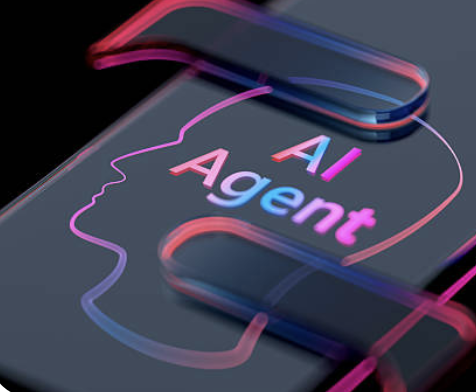Artificial intelligence (AI) is no longer a futuristic concept—it's a powerful set of technologies quietly reshaping the backbone of everyday business operations. From automating repetitive tasks to predicting customer needs in real time, AI-driven platforms help companies of all sizes unlock efficiency, accuracy, and new sources of growth. For a general audience curious about how AI translates into practical value, this article explores the concrete ways AI streamlines marketing, sales, and customer support.
Read on to understand the mechanisms behind AI's impact, examples you can relate to, and the best practices for rolling out AI projects in your organization.
Table of Contents
- Why AI Is Transforming Operations
- AI in Marketing
- AI in Sales
- AI in Customer Support
- Implementation Tips and Best Practices
- Conclusion
Why AI Is Transforming Operations
At its core, AI is a collection of algorithms that learn from data, recognize patterns, and make decisions or predictions with minimal human intervention. Businesses generate staggering amounts of information through websites, customer interactions, and internal processes. Traditional analytics can surface historical trends, but AI goes a step further by detecting subtle correlations and continuously refining outputs as new data streams in.
The results are tangible: reduced response times, lower operational costs, and enhanced customer satisfaction. Whether you are a startup founder or part of a large enterprise, understanding this shift is the first step toward harnessing AI's benefits.
AI in Marketing
Personalization Engines
Remember the last time an e-commerce site seemed to know exactly what you wanted? That's AI-driven personalization at work. Machine-learning models analyze browsing histories, purchase patterns, and contextual signals to deliver product recommendations that feel intuitive. By segmenting audiences at the individual level, marketers can craft offers that convert better than broad campaigns.
Content Generation and Optimization
Marketers spend countless hours producing blog posts, social media updates, and email copy. Natural language generation (NLG) tools now accelerate this process. These platforms analyze high-performing content, identify keywords, and draft variations in seconds. Meanwhile, computer vision can automatically A/B test visual elements, ensuring every asset is fine-tuned for engagement.
- Benefit: Faster campaign launches
- Benefit: Higher click-through and conversion rates
- Benefit: Consistent, data-driven messaging
AI in Sales
Lead Scoring
Sales teams often juggle hundreds of prospects, making it difficult to decide where to focus their energy. AI-powered lead-scoring models rank prospects based on demographics, online behavior, and intent signals. Representatives receive clear, real-time insights into which leads are most likely to convert, ensuring that follow-ups are timely and personalized.
Sales Forecasting
Accurate revenue predictions enable better budgeting and resource allocation. Traditional forecasting methods typically rely on spreadsheets and gut feelings. AI models process historical sales data, seasonality trends, and external factors such as economic indicators. The result is a more precise forecast that reduces the gap between projection and reality.
- Improved quota planning
- Data-driven inventory management
- Enhanced investor confidence
AI in Customer Support
Chatbots and Virtual Assistants
Modern consumers expect instantaneous answers. AI-powered chatbots meet this demand by resolving common inquiries 24/7. Using natural language processing (NLP), these bots interpret intent, fetch answers from knowledge bases, and escalate complex issues to humans only when necessary. Companies enjoy lower ticket volumes while customers appreciate shorter wait times.
Sentiment Analysis
Beyond responding to queries, AI can measure how customers feel about your brand. Sentiment analysis tools monitor social media, reviews, and support interactions, flagging emerging issues before they escalate. By proactively reaching out to dissatisfied users, businesses can turn potential churn into loyalty.
Implementation Tips and Best Practices
While the benefits of AI are compelling, successful adoption requires thoughtful planning. Here are key guidelines:
- Start with clear objectives: Identify pain points where AI can deliver measurable improvements.
- Secure quality data: Clean, well-labeled datasets are the lifeblood of accurate AI models.
- Pilot, then scale: Run small experiments, measure results, and refine before organization-wide deployment.
- Bridge human and machine: Provide training so teams understand how AI augments their roles rather than replaces them.
- Monitor and iterate: Continuously track performance metrics and retrain models as conditions evolve.
Following these steps minimizes risk and maximizes ROI.
AI is rapidly changing the way businesses operate by injecting intelligence into everyday workflows. In marketing, it tailors messaging at scale; in sales, it pinpoints the most valuable leads; and in customer support, it delivers around-the-clock assistance. Companies that adopt AI thoughtfully stand to gain faster growth, happier customers, and leaner operations.
If you're ready to take the next step, begin by auditing your current processes, setting clear goals, and exploring accessible AI tools that align with your needs. Revscale's AI Agent Configurator can do this audit for you just from you answering a few simple questions. The future of business efficiency is already here—make sure your organization is part of it.
Frequently Asked Questions
Is AI only for large enterprises?
No. Cloud-based AI services and no-code platforms make advanced capabilities affordable for small and midsize businesses.
Will AI replace human jobs?
AI automates repetitive tasks, but it also creates new roles that focus on strategy, oversight, and creative problem-solving.
How long does it take to see ROI from AI projects?
Smaller pilots often yield results within a few months, while larger transformations may take a year or more, depending on data readiness and change management.
.svg)









